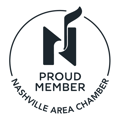Why We Haven’t Stopped Creating Opportunities
Back on October 6 I talked a little bit about how the unexpected onset of the pandemic and the accompanying lockdowns and economic downturn meant that no matter what we did moving forward, we were guaranteed to have a surge in the number of Seekers. The combination of full classes already underway that were going to continue to graduate through March of 2021 and a slump in open positions were a nasty combination. That’s why we decided to step up the resources dedicated to Seekers and roll out new programs like our Fellowship Program. It’s also why we launched our Mind the Gap fundraising campaign.
But we’ve also been asked why we didn’t reduce student numbers once we realized what the effects of the coronavirus would be. It’s been pointed out that we always used available jobs relative to the number of our graduates, as reflected in the average job search time for our graduates, as a metric in deciding when to add additional classes. I’ve said in prior years that we never wanted to expand or grow faster than the growth in the local tech job market. So why didn’t we respond to the pandemic by cutting back on the number of NSS students, either by reducing class sizes or eliminating entire cohorts? If we did that then over time the number of Seekers would be reduced naturally as our graduate numbers came back into balance with the ability of the job market to absorb juniors.
It’s a fair question. Ironically, it’s also one we asked ourselves back in January when we met with our Board of Directors in our annual strategy review session. At that time, we were asking the question in the context of a potential recession - the economy had been in a slow growth mode for a few years, and had shifted into a more rapid growth mode back in 2016, and there were starting to be more and more predictions of the inevitable next economic slowdown starting in late 2020 or in 2021. So it was a topic we devoted over an hour of discussion to during the offsite strategy session.
Six weeks later, we were scrambling to go completely online and remote after the onset of the pandemic and staring at a much more dramatic and rapid onset of an economic slowdown than any of us could have imagined at our strategic planning retreat. And yet in July, once we had finished adjusting everything about how we operated the school to be online and remote, we had another board meeting and a chance to revisit the decision of how to respond to the economic downturn. Once again, the board made the decision to not cut back on student enrollment levels. We decided that we would go ahead and hold every class that was planned and that we would fill them as long as we had qualified candidates.
Why did we decide to keep student levels where they were if we knew that the number of available jobs was down? Weren’t we doing exactly what we said we didn’t want to do?
We didn’t see it that way. What we saw was a decision that had to be made in extreme uncertainty. A decision where most of the questions that provided input into the decision-making process had unclear or conflicting answers. Ultimately, we saw a question that forced us to fall back on our core purpose in order to find guidance as to the right answer.
So Many Questions, So Few Answers
What were the questions we needed answers to in order to have clarity regarding the right decision? Here are a few of the ones we identified - and these aren’t all of the factors by any means. And remember, it’s July 2020, so we’re four months into a situation that none of us have experienced before.
- How long will the COVID-19 pandemic last? How bad will it get? Will we get a vaccine, and if so, when?
- What will applicant demand look like? Will we have adults that want career skills training during an unprecedented public health and economic situation? Would any of them be able to afford tuition?
- How long will it take for the tech job market to recover? What will employer demand look like in the second half 2020, first half 2021, second half 2021?
- What will the impact of remote job eligibility for our Seekers be? Will the experience of working on a remote team help them qualify for remote developer jobs they can do from Nashville, opening up more job opportunities than previous Seekers have had access to?
- Was this an existential threat to NSS - would we be able to get through this and still survive? We had been bootstrapping for 8 years and as a result had limited financial staying power due to limited cash reserves and as a non-profit fewer ways to access capital.
- How do we trade off the desire/need for applicants to start new careers with the current state of the job market? How can we estimate the job market at the time an applicant will be graduating and searching for a job (which could be 8 to 12 to 15 months into the future)?
What did we believe about these questions back in July, what did we decide - and what additional information has become visible?
- We had no idea when the pandemic might end (i.e. a vaccine or other forms of treatment might become available). Our best assessment of the projections as of July was that we didn’t know enough to have any confidence in a vaccine. Vaccine creation is a high risk process and usually takes several years. The earliest potential date was said to be the first quarter of 2021. Current projections still say maybe first quarter 2021 but more likely later in the year and maybe never (depending on who you believe).
- We weren’t sure what enrollment demand would look like through 2020 and into 2021, but we were definitely seeing strong applicant demand return by mid-year. Application rates really slowed down in March and April. Also, we saw quite a few students that had accepted seats in April classes change their minds - they wanted to wait till we came back in-person, they could no longer afford regular tuition, they wanted to delay for a few months until they could get a better picture of what was happening with their kids’ school, with their jobs, with a sick family member, etc. The applications we were seeing were starting to be dominated by individuals who had been impacted by the coronavirus in one or more ways. We were starting to get a clear picture of people seizing an opportunity to use this uncertain time to lay the groundwork for bettering their lives and their family’s lives once the pandemic ended. Were we going to turn large numbers of these individuals away by cutting back on enrollment?
As of today, we are seeing application flow at levels that allow us to fill classes - people are clearly still looking to find or change careers and prepare for the recovery in the economy - but it has slowed a bit in the fourth quarter. Will that continue, or will it go back up once we get into 2021? - We had no idea when the job market would start to recover. You could find stories about “V-shaped” recoveries, “U-shaped” recoveries”, “L-shaped” recoveries (I even saw at least one about a “K-shaped” recovery). Estimates were floated of from the fourth quarter of 2020, to the second half of 2021, to 2022 sometime, or 2023 sometime, out to 2024 even. Here more recently, it seems clearer that nationally there is a fairly robust recovery underway. However, Nashville’s recovery in some sectors is lagging given the importance of tourism, hospitality and music to our local economy and the fact that those industries are still suffering more than most.
- Job placements of our Seekers were very limited in March and April. Employers were clearly as confused as we were about the impact of the coronavirus on their business. There were layoffs and furloughs but there were also companies still actively hiring and growing. By July we were seeing a steady recovery of interview activity and a definite improvement in placement activity. Still down quite a bit from six or nine months earlier, but then that was the best tech job market we’ve ever seen in Nashville by a significant margin. We were hearing many more employers talking about hiring plans in the second half of the year. Things were coming back, even if it was slowly.
- By July we were able to be somewhat more certain that we weren’t looking at an existential crisis for NSS, or at least not one in the short term. So it became more of a question of how to retain our staff and teaching capacity through to a full recovery, whenever it might come.
I could continue, but you get the idea. We had lots more questions than we had answers. Nobody’s crystal ball was working very well. So we had to make the best judgement we could, given very imperfect information. We did find that all of us on the board believed that the Nashville tech job market would recover fully. And we believed that the recovery would come in 2021, not farther off into the future.
Focus On Our Mission
We ultimately decided that we would fall back on the core mission, the essential purpose, of NSS - providing opportunity. Providing motivated adults with aptitude access to the opportunity to acquire the skills necessary to find or change careers, irrespective of their economic situation.
If you’re going to have a core purpose then I suppose that part of the reason it exists is to provide guidance when the crystal balls are cloudy and you need to find true north so you can navigate unknown waters. We decided that we would not cut back on the number of classes or on the size of our classes so long as we have qualified applicants that want, and need, this opportunity.
Yes, that means that our Seekers will have longer job search times than we’ve been used to for the last 2 or 3 years. Mostly that’s the pandemic, but it’s also a function of the number of new graduates. That’s why we’re adding career development and employer engagement resources to support Seekers and why we’re creating new initiatives like free workshops/classes for Seekers and like our Fellowship Program. It’s also why we, for the first time in our history, are reaching out to our alumni and to the broader community to ask for your donations. Help us keep NSS strong and help us help our Seekers. It’s as simple, and as complex, as that.







